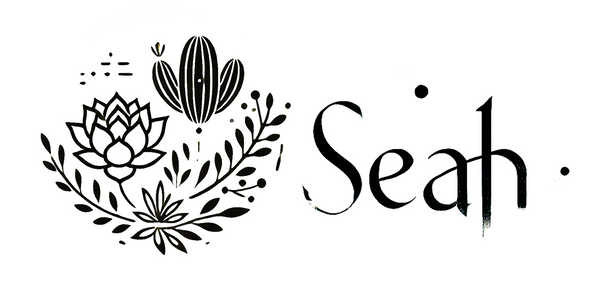Crassula Susannae
Crassula Susannae
In stock
Couldn't load pickup availability
📝 Description
Morphological Characteristics
Crassula susannae is a compact and rare succulent known for its stacked, rounded leaves and geometric symmetry. The plant grows in tight, columnar clusters, with thick, pale green leaves that overlap like tiles or shingles.
Its unusual architectural form gives it a sculptural appearance that’s appealing in minimalist or modern succulent arrangements. The surface of the leaves is matte and may develop a slight pink blush in cooler temperatures or with stress.
Mature plants can reach 5–10 cm (2–4 inches) in height and form dense clumps over time. In autumn or early winter, it produces small, star-shaped white to pale pink flowers on short stems that emerge between the leaf clusters.
Growth Habits
Crassula susannae is a slow-growing, clumping succulent that stays compact and tidy. It propagates naturally by offsetting, forming a low mound of repeating rosettes. Its slow rate makes it ideal for bonsai-style arrangements or decorative pots where controlled growth is desired.
Best suited for indoor containers or sheltered outdoor spaces with bright light and good airflow.
Maintenance Points
• Lighting: Prefers bright, indirect sunlight or morning sun. Too much direct sun can cause leaf burn.
• Watering: Water deeply but only when the soil is fully dry. Avoid overwatering, especially in cool weather.
• Soil: Requires fast-draining cactus or succulent soil. Add pumice or perlite for extra drainage.
• Temperature: Ideal range is 16–25°C (60–77°F). Protect from frost. Not cold-hardy.
• Fertilization: Feed with a diluted succulent fertilizer once per month during the growing season.
• Handling: Easy to handle, but avoid excessive moisture at the base to prevent rot.
Display & Use
Crassula susannae is best showcased in:
• Shallow ceramic dishes or minimalist succulent bowls
• Rock gardens and bonsai-themed compositions
• Window sills or shelves with controlled lighting
• Mixed arrangements with other compact, stacking succulents like Crassula ‘Tom Thumb’ or Echeveria minima
🌿 Care Tips
Plant Care
Light
Water
Soil
Temperature
Hardiness
Fertilizer
Propagation: Leaf/offset cuttings
Common issues: Etiolation, mealybugs, rot
🌟 Note: It’s normal for succulents to appear slightly shriveled after shipping. They usually recover within a few days in a suitable environment.
📦 Shipping Info
Seah Shipping Policy
Effective Date: November 2025
This Shipping Policy applies to orders delivered within the continental United States (the lower 48 states). By purchasing from Seah, you agree to the terms below.
1) Shipping Cost & Free Shipping
- Automatic rate calculation: Shipping is calculated at checkout based on weight, destination ZIP and carrier rates.
- Free Standard Shipping: Orders $59+ (pre-tax, after discounts) ship free to the lower 48 states.
- Alaska, Hawaii, Puerto Rico & other territories: Not eligible for free shipping or standard flat offers at this time.
- Taxes/Duties: Applicable sales tax and any fees are shown at checkout.
2) Processing Schedule
- Business days only: We process and ship Monday–Friday. No shipping on weekends or U.S. federal holidays.
- Handling time: 1–3 business days after payment confirmation.
- Cut-off time: Orders placed before 3:00 PM (PST) are prioritized for same-day processing; others roll to the next business day.
- Changes/Cancellations: Email support@seah.co within 12 hours of purchase; after that, the order may already be in processing.
3) Transit Times
| Method | Estimated Transit | Total ETA (Handling + Transit) |
|---|---|---|
| Standard | 5–8 business days | 6–11 business days |
| Express | 3–4 business days | 4–7 business days |
ETAs are estimates. Weather, holidays, carrier delays or high-volume periods may extend delivery times.
4) Seasonal Temperature & Plant Safety
- Winter (Nov–Mar): We strongly recommend adding a heat pack at checkout to protect plants from freezing. Orders shipped without a heat pack during cold conditions are not covered for cold damage.
- Summer heat: During extreme heat waves, we may hold shipments until temperatures normalize. We’ll notify you if there’s a hold.
- Packaging: Plants are carefully packed (bare-root or potted by type/size) to minimize transit stress.
5) Carriers & Tracking
- We ship via USPS / UPS / FedEx, selected automatically for best service to your address.
- When your order ships, you’ll receive a tracking email. Tracking typically activates within 24 hours.
- If you haven’t received tracking within 3 business days, contact us at support@seah.co or +1 (626)-999-1314.
6) Address Changes & Delivery Issues
- Before shipment: Request address changes within 12 hours of ordering.
- After shipment: We can’t modify the address once dispatched. Please contact the carrier for redirection options.
- PO Boxes: Supported for USPS only; UPS/FedEx require a street address.
- Seah isn’t responsible for delays or loss due to incorrect addresses provided at checkout.
7) Service Area
We currently ship to the continental U.S. (lower 48 states). Orders to AK/HI/PR and other territories are not eligible for free shipping and may be restricted.
8) Support
- Hours: Mon–Fri, 9:00 AM – 5:00 PM (PST)
- Phone: +1 (626)-999-1314
- Email: support@seah.co
- Address: 7870 Margaux Pl, Rancho Cucamonga, CA 91739, United States
Thank you for supporting our California nursery—each plant is hand-selected and packed with care. 🌱








